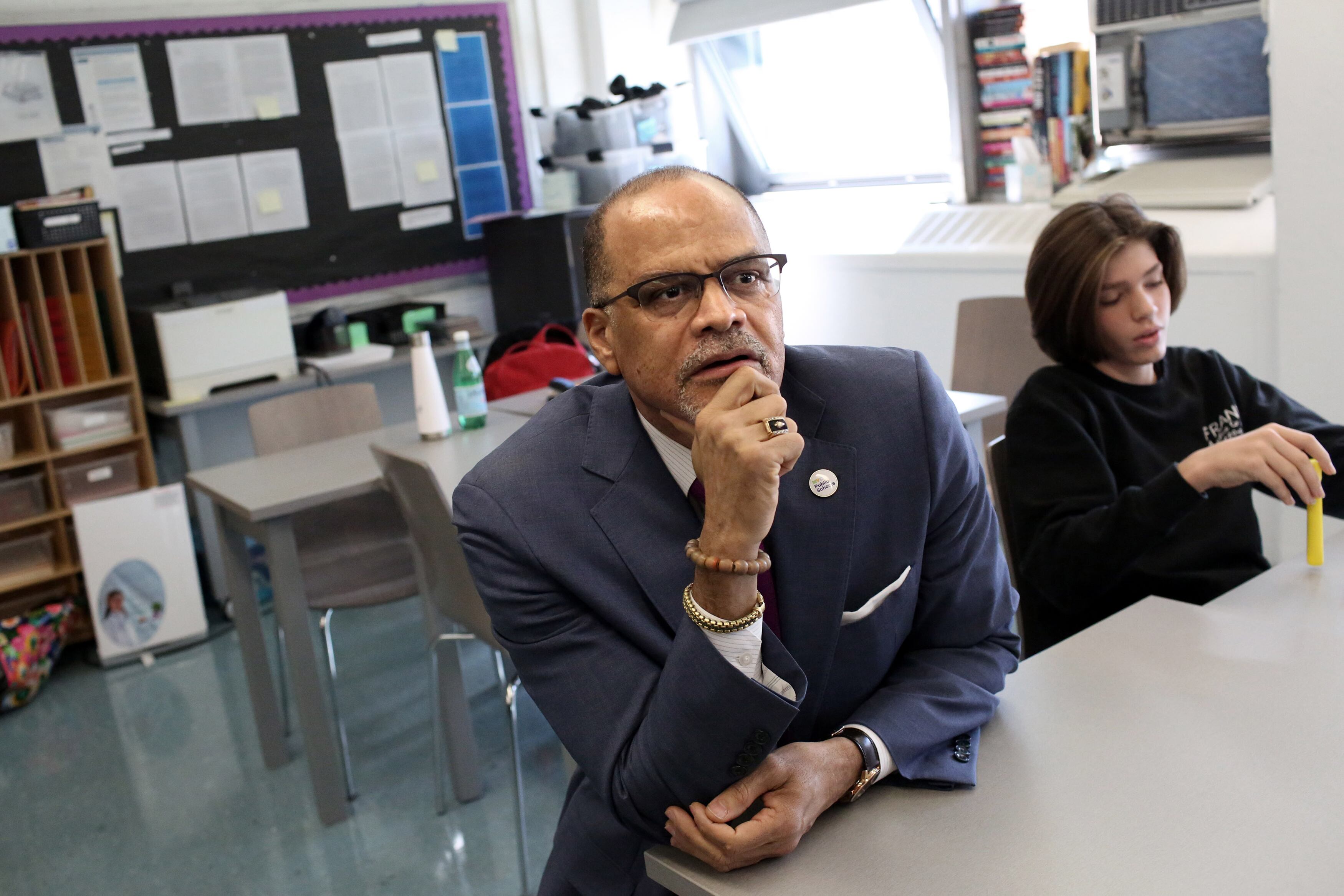New York City schools Chancellor David Banks sought to strike a balance between affirming students’ rights to protest and disavowing hate speech as he responded to college campus unrest and previewed his upcoming testimony before Congress.
Citing his own history of involvement in student activism and social justice — including in the movement to divest from apartheid-era South Africa when he was a college student — Banks told reporters on Thursday that he supports student activism “at the highest level.”
But he urged activists not to “allow that discontent to morph into hatred for anyone.”
Banks was on the scene Tuesday night at Columbia University as police raided a building that demonstrators had occupied. He later made his way to City College of New York, where police cleared a tent encampment and made hundreds of arrests.
He said he was troubled by an experience at City College in which roughly a dozen protesters “surrounded” him when he tried to enter the quad and barred him from entering, telling him, “We own the quad.” He said he was disappointed by graffiti he saw on the campus the next morning that said “Death to America,” and “Death to Israel.”
The protests and police backlash have garnered international attention, and have been closely watched by many city high school students, some of whom are considering attending the colleges at the center of the tumult.
Banks’ comments Thursday previewed the message he intends to deliver next week before the U.S. House Committee on Education and the Workforce — the same committee that has grilled college presidents from Columbia, Harvard, University of Pennsylvania, and MIT in recent months.
Banks is expected to appear alongside district leaders from Maryland’s Montgomery County and Berkeley, California, to share their responses to antisemitism in K-12 schools.
New York City’s school system, the nation’s largest, has seen multiple flare-ups over the Israel-Hamas war, including a raucous student demonstration at Hillcrest High School over a teacher posting a photo with an “I Stand With Israel” sign, a citywide student walkout calling for a ceasefire in the Gaza Strip, and allegations of unchecked student antisemitism at a Brooklyn High School — allegations officials have denied.
Banks emphasized that his approach has leaned on convening community members, including assembling an interfaith council, while developing curricula on Jewish and Muslim history and reviewing the disciplinary code with city principals.
His own background “as a Black man who is keenly aware of trauma and pain and oppression that my own people have suffered in America” has given him “an affinity for both the Jewish and the Palestinian people,” he added.
Banks expressed concern that the questioning from the Republican-led committee, which includes New York representative Elise Stefanik, would be more focused on “viral moments and empty soundbites and cheap political talk” than substantive solutions.
“Putting a spotlight on any particular individual and sometimes trying to create gotcha moments is not how you ultimately solve problems that you really, deeply care about,” he said. “I would ask for Congress to figure out a way to bring people together from across the nation to help to solve for this insidious level of hate.”
Banks acknowledged that the city’s response to tensions over the Israeli-Palestinian conflict hasn’t been “perfect,” but said he’s proud of the efforts so far.
He also expressed confidence in his own ability to go toe to toe with his congressional questioners, noting that he’s “from New York,” and that squaring off with Brooklyn Councilmember Lincoln Restler, a progressive Democrat, during council hearings was good preparation.
Michael Elsen-Rooney is a reporter for Chalkbeat New York, covering NYC public schools. Contact Michael at melsen-rooney@chalkbeat.org.






